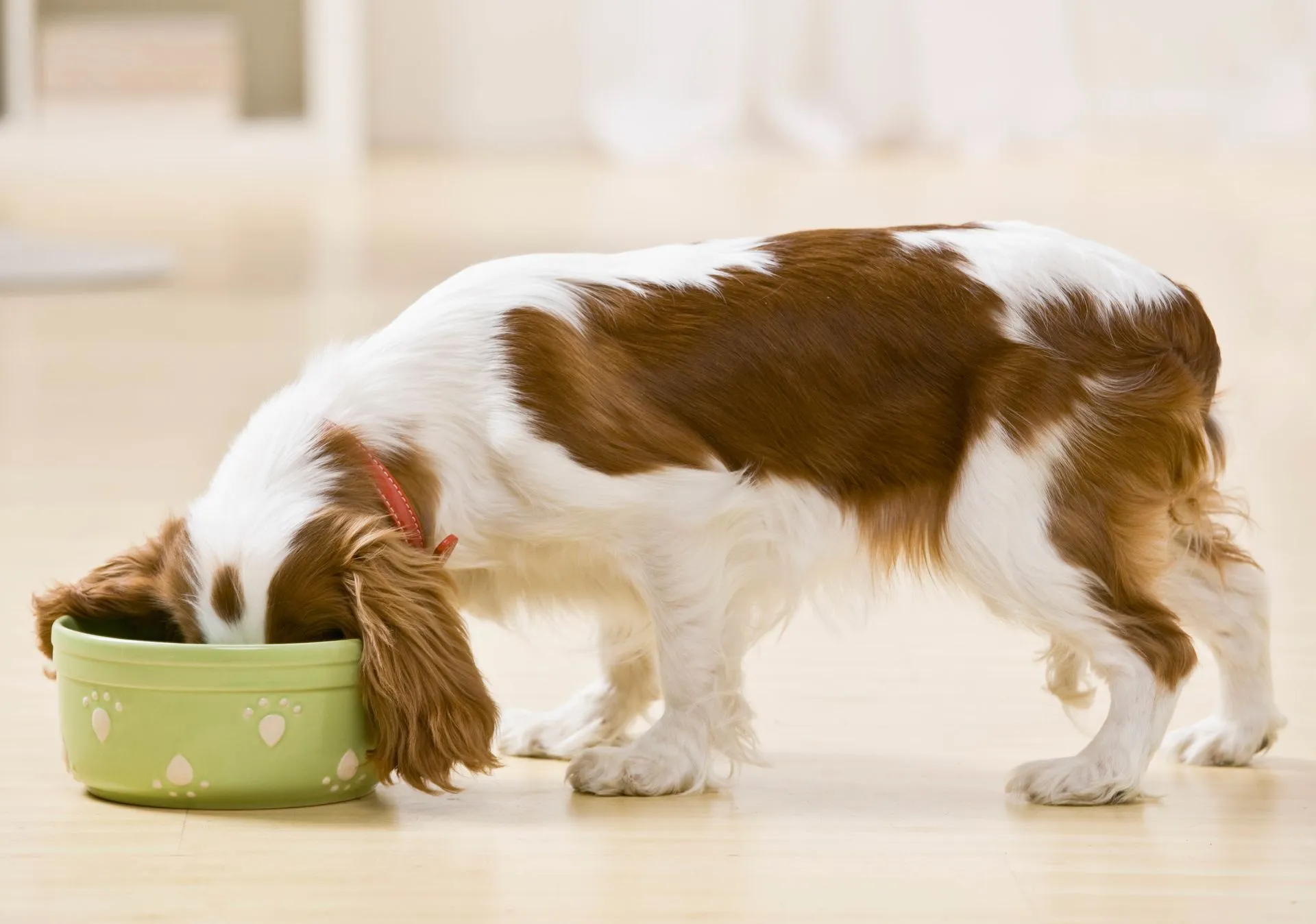Good nutrition is paramount for a dog’s health, especially during pregnancy. Both overfeeding and underfeeding can harm the mother and her developing puppies. While it’s common to overfeed early on and underfeed while nursing, understanding the specifics of a pregnant dog’s diet is crucial. This guide focuses on what pregnant dogs should avoid to ensure a healthy pregnancy and litter.
Your dog should always have access to fresh water. Dehydration can be especially dangerous during pregnancy. Unless your veterinarian advises otherwise, never restrict your dog’s water intake.
Prior to breeding, maintain your dog on a high-quality adult dog food. Continue this feeding regimen in the early stages of pregnancy. Puppy growth is minimal in the first 4 to 5 weeks (a dog’s pregnancy lasts about 62 days). Therefore, extra nutrients aren’t necessary at this point. Overfeeding can lead to unnecessary fat gain, complicating delivery and raising complication risks. Expect a temporary appetite decrease around the third week, lasting 3 to 10 days. As long as your dog eats a little, this is usually not concerning. However, if she stops eating entirely for more than 1 to 2 days, consult your veterinarian.
 pregnant dog resting
pregnant dog resting
A pregnant dog resting comfortably, highlighting the importance of a comfortable environment during pregnancy.
During the final 3 to 4 weeks, puppies grow rapidly, demanding significant nutrients. The mother’s weight should increase by 25 to 30 percent. Gradually increase her food intake until she’s consuming 25 to 30 percent more by delivery time. If she normally eats 1 cup of food twice daily, increase it to 1 1/4 to 1 1/3 cups twice daily. Switch to a diet with more calories per serving, like growth/puppy food or a lactation diet. Puppy food ensures the mother receives the nutrients needed for her growing pups. A lactation diet is another excellent option.
Feeding frequency depends on litter size. Dogs with large litters might not have space for large meals twice a day. Offer small, frequent meals throughout the day, or leave the day’s ration in the bowl for her to nibble on. If self-feeding, ensure she’s eating enough. Poor nutrition, especially late in pregnancy, can cause pregnancy toxemia.
Before delivery, your dog will significantly reduce her food intake, some even stopping entirely. This often indicates that puppies are arriving within 24 to 48 hours. Keep food available, but don’t expect her usual appetite. This is normal, but prepare for the new arrivals!
Foods and Substances to Avoid During Dog Pregnancy
While a balanced diet is crucial, knowing what to avoid is equally important. Here’s a list of things pregnant dogs should not eat:
- Raw Meat, Fish, and Eggs: These can harbor bacteria like Salmonella and E. coli, potentially causing infections leading to miscarriage or stillbirth.
- Unpasteurized Dairy Products: Similar to raw meat, these can contain harmful bacteria.
- Chocolate: Toxic to dogs due to theobromine, potentially causing heart problems, seizures, and even death. Dark chocolate is the most dangerous.
- Caffeine: Also a stimulant that can harm the puppies’ developing nervous systems.
- Alcohol: Even small amounts can cause severe developmental issues in puppies.
- Grapes and Raisins: Can cause kidney failure in dogs, even in small quantities.
- Onions and Garlic: Toxic to dogs, damaging red blood cells and leading to anemia.
- Xylitol: An artificial sweetener found in many sugar-free products; extremely toxic to dogs, causing a rapid drop in blood sugar and liver failure.
- Salty Snacks: Excessive salt can lead to dehydration and high blood pressure.
- Processed Foods with Additives: Artificial colors, flavors, and preservatives can be harmful. Stick to natural, whole foods.
- Bones: While often given as treats, bones can splinter and cause choking or internal damage.
Supplements: Proceed with Caution
Some veterinarians recommend vitamins during pregnancy, while others believe a proper diet provides sufficient nutrients. Either way, only add supplements if instructed by your veterinarian. Excessive vitamins or minerals can negatively affect both mother and puppies.
Calcium deserves special attention. Supplementing calcium, especially late in pregnancy, has been linked to increased risk of eclampsia (low blood calcium) in nursing dogs. Excess calcium has also been associated with difficult deliveries, soft tissue calcium deposits in puppies, and joint abnormalities. Therefore, avoid calcium supplements unless specifically prescribed by your vet. Always consult your veterinarian before introducing any supplement to your dog’s diet during pregnancy. They can assess your dog’s specific needs and provide tailored advice.
What to Do If Your Pregnant Dog Eats Something She Shouldn’t
If your pregnant dog accidentally consumes something from the list above, contact your veterinarian immediately. Provide as much detail as possible about what she ate, how much, and when. Early intervention can minimize potential harm to both the mother and her puppies.
Understanding what pregnant dogs should not eat is crucial for ensuring a healthy pregnancy. By avoiding harmful foods and substances, you can help your dog deliver a healthy litter of puppies. Always consult with your veterinarian for personalized dietary advice tailored to your dog’s specific needs. A well-informed and cautious approach to nutrition is the best way to support your pregnant dog throughout this critical period.
